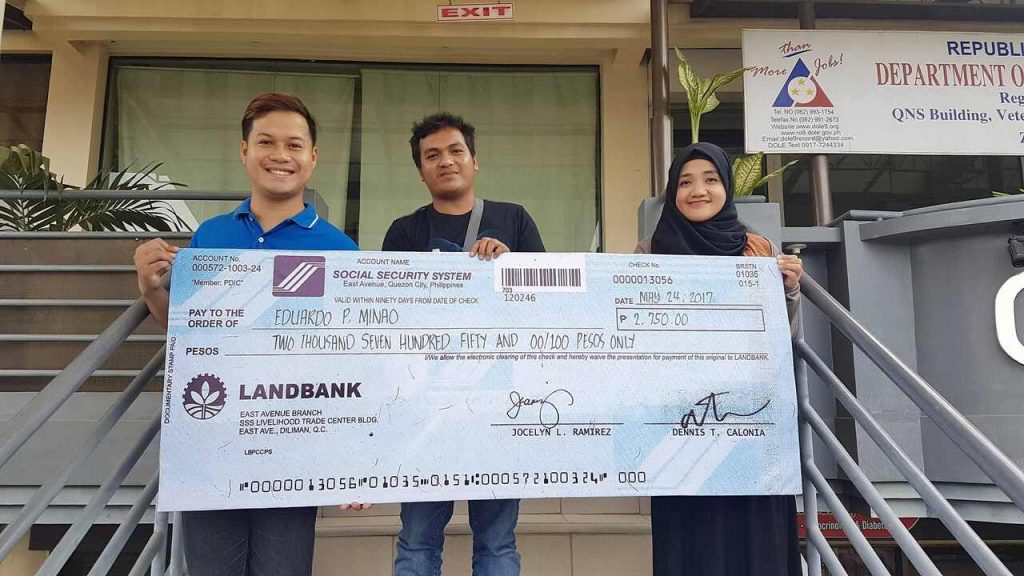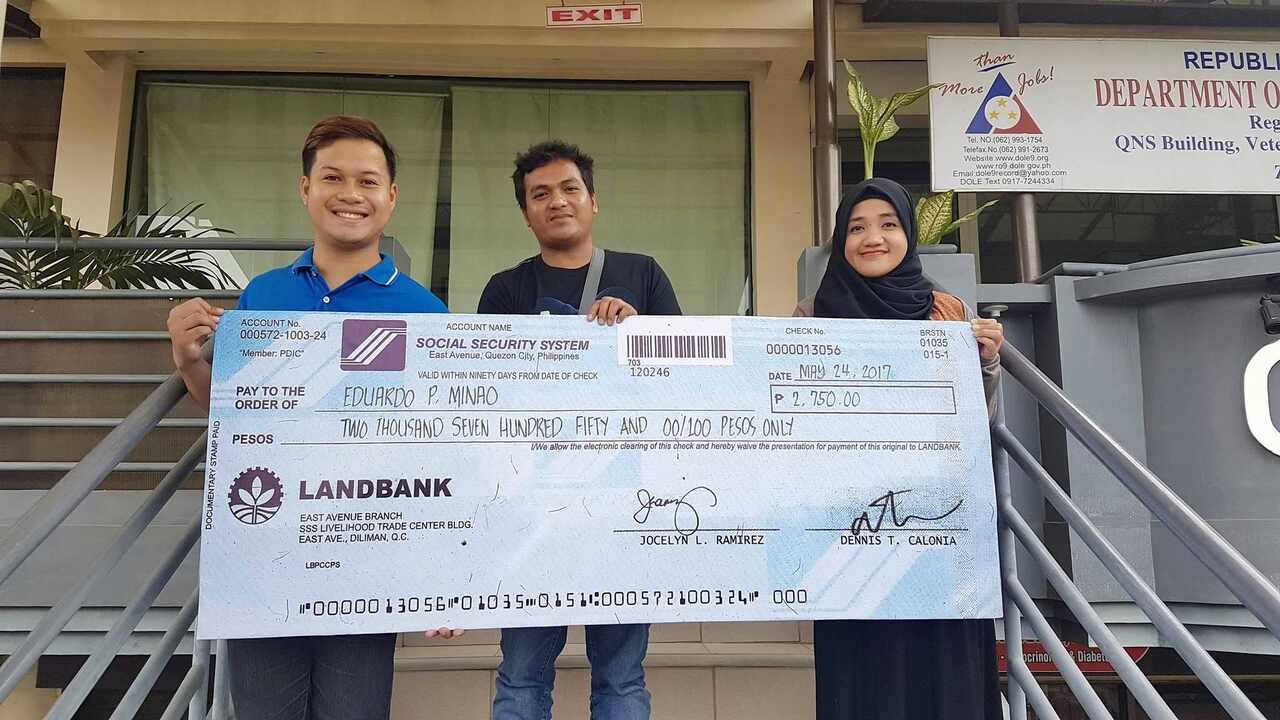The Employees’ Compensation Program (ECP) is a government initiative under the Department of Labor and Employment (DOLE) designed to assist employees in both the private and public sectors. It provides financial aid and other forms of support to workers who experience work-related sickness, injuries, or death. Understanding how to access this program is important for employees seeking assistance during challenging times caused by occupational hazards.
This guide explains who is eligible for the ECP, the types of benefits it offers, along with a detailed guide on the application process. By the end of this article, you will have all the information needed to confidently apply for ECP benefits through DOLE’s Employees’ Compensation Commission (ECC).
Program Overview

The ECP is a government initiative managed by the ECC under the DOLE. Established to assist workers in both public and private sectors, the program provides financial support for work-related illnesses, injuries, or deaths. Rooted in Presidential Decree No. 626 enacted in 1974, it continues to serve as a safety net for employees facing workplace risks.
The ECP is anchored on Presidential Decree No. 626, which mandates compensation for employees who suffer work-related contingencies. Its objectives include offering income replacement, medical assistance, and rehabilitation services to employees or their beneficiaries. The program covers private sector workers enrolled in the Social Security System (SSS) and government sector employees registered under the Government Service Insurance System (GSIS), starting from their first day of employment.
Benefits
The ECP offers a range of financial and support services to employees or their beneficiaries:
- Loss of Income Benefits
- Temporary Total Disability (TTD): Compensation for workers unable to work for up to 120 days.
- Permanent Total Disability (PTD): For workers unable to work beyond 240 days.
- Permanent Partial Disability (PPD): For employees who lose a body part or its function.
- Medical Services: The program covers expenses for medications, hospital care, surgeries, and medical appliances. These services are limited to accredited hospitals and ward facilities.
- Rehabilitation Services: Includes physical therapy, vocational training, and special assistance to help affected employees regain employment or contribute productively to society.
- Carer’s Allowance: A monthly stipend provided to employees with permanent total disabilities who need assistance with daily activities.
- Death and Funeral Benefits: Compensation for beneficiaries in cases of death due to work-related sickness or injury. A funeral benefit is also provided to cover burial expenses.
Additional ECC Programs and Services
ECC Quick Response Program (QRP)
This service offers immediate assistance to workers or their families affected by workplace accidents or sudden illnesses. Services include counseling, help with claim applications, and facilitation of benefits.
ECC KaGabay Program
The KaGabay Program supports occupationally disabled workers (ODWs) by providing:
- Physical therapy and rehabilitation services.
- Skills training for alternative employment opportunities.
- Entrepreneurial training to help workers start small businesses.
Who is Covered?
Coverage under the ECP begins on the first day of employment. Workers from various industries are all eligible beneficiaries under the program. These beneficiaries include:
- Private Sector Workers
- Employees who are registered members of the Social Security System (SSS).
- Sea-based Overseas Filipino Workers (OFWs).
- Self-employed and voluntary SSS members are not included.
- Government Sector Employees
- Members of the Government Service Insurance System (GSIS), including employees of the PNP, AFP, Bureau of Fire Protection (BFP), and Bureau of Jail Management and Penology (BJMP).
- Elected officials receiving regular salaries, as well as casual, contractual, and substitute employees.
When are Sickness, Injury, or Death Compensable?
To qualify for ECP benefits, the illness, injury, or death must be directly linked to employment. Here are the conditions:
- Work-Related Illnesses
- The illness must appear on the list of occupational diseases under Annex “A” of the Amended Rules on Employees’ Compensation. If not listed, evidence must show that workplace conditions increased the risk of contracting the illness.
- Workplace Injuries
- The injury must result from an accident that occurred during or as a result of the worker’s employment.
- Work-Related Death
- In cases of death caused by a workplace injury or illness, beneficiaries are entitled to compensation and other benefits.
Documentary Requirements
To apply for the DOLE ECC Employee Compensation Program (ECP), applicants must prepare the following documentary requirements:
- Duly accomplished EC Claim Form (available at SSS or GSIS branches).
- Accident/Sickness Report from the employer.
- Medical Certificate detailing the diagnosis and treatment.
- Valid ID of the employee or claimant (government-issued).
- Proof of Employment (e.g., employment certificate or payslips).
- Updated Member’s Record with SSS or GSIS.
- Death Certificate (for death claims).
- Marriage Certificate (if the claimant is the spouse).
- Birth Certificate(s) of the children or other dependents.
- Official Receipts or Billing Statements for medical expenses (for reimbursement).
- Police Report (for work-related accidents, if applicable).
- Authorization Letter (if a representative is filing the claim).
Note: Additional documents may be required depending on the type and conditions of claim.
How to File an Employees’ Compensation Claim
Filing a claim under the ECP is a straightforward process. To apply, simply follow these steps:
Step 1. Gather all required documents specific to your type of claim (e.g., medical, death, or disability).
Step 2. Complete the EC Claim Form, ensuring all sections are properly filled out.
Step 3. Submit your application and documents to the nearest SSS or GSIS branch, depending on whether you are a private or government sector employee.
Step 4. Await notification for further instructions or additional requirements from SSS or GSIS.
Step 5. Track your application status through the SSS or GSIS portal or by contacting their office.
Note: Claims must be submitted within three years of the incident:
- For Sickness: From the date the worker was unable to report to work.
- For Injury: From the date of the accident.
- For Death: From the date of death.
Where to File a Claim
- Private Sector Workers: File claims at the nearest SSS branch.
- Government Employees: Submit applications at the GSIS Regional Office closest to the workplace or residence.
Note: If a claim is denied, the claimant can file a reconsideration request with the SSS or GSIS main office. Appeals can also be directed to the ECC at the nearest ECC Regional Extension Unit for guidance and assistance or, if necessary, to the Court of Appeals.
Regional ECC Offices for Assistance
Claimants in the provinces can visit ECC Regional Extension Units (REUs). These offices are located in various regions, including Tuguegarao City, Pampanga, Legazpi City, Cebu City, Davao City, and more.
For more information on these offices, you can contact the ECC through their official website (www.ecc.gov.ph), email (ecc_mails@yahoo.com), or Facebook page (facebook.com/ecc.official).
Filing Tips and Reminders
To ensure that the application will be completed successfully, make sure to keep the following reminders in mind:
- Prepare all required documents, including medical records, employment certifications, and proof of work-related incidents.
- File claims as early as possible to avoid missing the three-year prescriptive period.
- Seek assistance from the ECC-QRP if you need help navigating the application process.
- Keep a record of all submitted documents and correspondence for reference.
Video: ECC Programs and Services
Learn more about the different programs and support services offered by the Employees’ Compensation Commission (ECC) along with a deeper understanding of how the programs work and how they can benefit you or your loved ones in this video from the Department of Labor and Employment (DOLE).
Summary
The Employees’ Compensation Program (ECP) is a financial assistance initiative under DOLE that supports employees affected by work-related sickness, injuries, or death. Filing a claim is a simple process, and the benefits include income compensation, medical services, rehabilitation, and death benefits for beneficiaries. With the ECP, employees and their families are given meaningful support during challenging times, helping them manage the financial impact of workplace incidents effectively.
